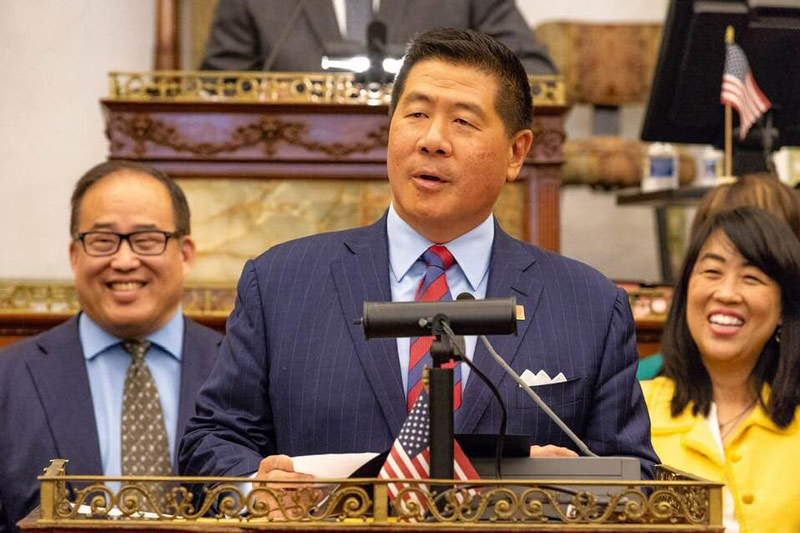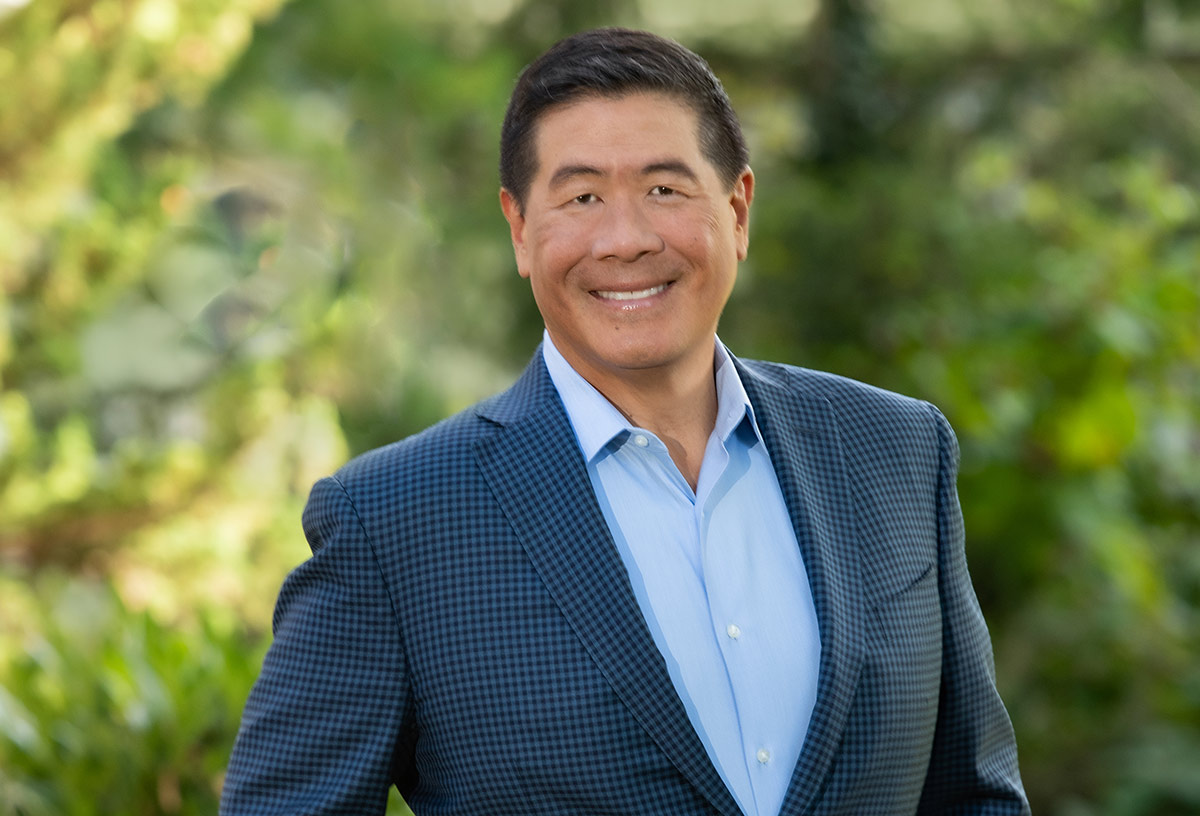
Over more than three decades as a business leader and innovator, Stephen S. Tang ’85G ’88G ’22P has made his mark. After transforming Philadelphia’s entrepreneurial landscape as president and CEO of the University City Science Center, the chemical engineering alum went on to play a pivotal role at OraSure Technologies, where the company pioneered groundbreaking advancements in rapid diagnostic testing—well before nasal swabs and reagent solutions became household items.
“My time at OraSure underscored the importance of trustworthy and compassionate leadership before and during the COVID-19 pandemic,” says Tang, who reflects on his experiences in his recently published book, A Test for Our Time: Crisis Leadership in the Next Normal. “I’m proud that the company played a pivotal role in developing easy-to-use at-home COVID test kits that helped to slow the spread of the virus and bring the pandemic to an end.”
Tang is currently the principal at Tangent2Cogent and board chairman of NowDiagnostics. He also serves as a Lehigh Trustee and gave the keynote address at the 2024 Graduate Commencement and Doctoral Hooding Ceremony, telling graduates: “Life is more than numbers. It’s more than the number of working years, the amount of wealth, the accolades of career accomplishments. It’s about leaving a legacy of kindness, compassion, empathy, and service to higher causes."
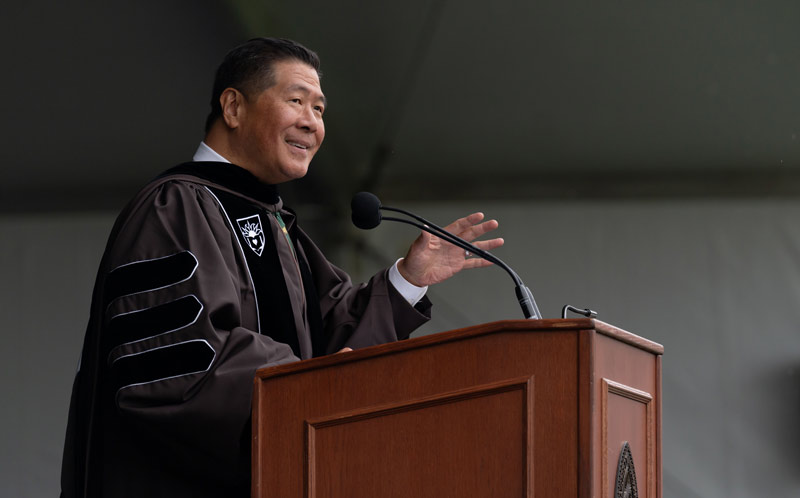 Q: Your Commencement message mentioned your family’s strong academic background and how you followed a similar path. How would you characterize the value of graduate engineering education for students aiming to make a real-world impact?
Q: Your Commencement message mentioned your family’s strong academic background and how you followed a similar path. How would you characterize the value of graduate engineering education for students aiming to make a real-world impact?
Even though I’m a third-generation PhD, grad school surprised me with its intensity and rigor. More importantly, I discovered that learning extends far beyond textbooks and labs. Collaborating with diverse minds and cultures taught me the value of multidisciplinary approaches to solving complex problems. Building resilience and perseverance amidst challenges were crucial lessons, strengthening my ability to adapt and innovate in the real world.
Graduate engineering education is invaluable for students aiming to make a high impact. Advanced technical skills aside, it cultivates critical thinking, teamwork, and creativity—essential traits for solving society’s pressing challenges. Lehigh’s unique environment inspires the development of groundbreaking solutions, allowing graduates to drive meaningful change and contribute to a better future.
Lehigh’s real-world value lies in deep specialized knowledge and broad personal growth. It equips individuals with confidence, curiosity, and adaptability to navigate an ever-evolving landscape. Graduate engineering education empowers students to make a profound difference in the world by fostering collaboration and resilience and cultivating thought leadership.
Q: How do you define an “entrepreneurial mindset” and how has your experience as an entrepreneur influenced your leadership style? What benefits do you see in enhancing entrepreneurial training and practice across Lehigh’s campus?
An entrepreneurial mindset embodies creativity, resilience, and a passion for turning ideas into impactful solutions. It thrives on embracing challenges and relentlessly pursuing opportunities.
My entrepreneurial journey profoundly shaped my leadership style. Over 30-plus years, I cultivated adaptability, strategic thinking, and a bias for action—crucial traits in today’s rapidly evolving world. By fostering an innovative and agile culture, I’ve empowered teams to embrace calculated risks, learn from failures, and achieve remarkable outcomes.
As a Lehigh Trustee, I envision advancing entrepreneurial training and practice as a catalyst for inspiring Future Makers. Infusing this mindset across disciplines nurtures a versatile talent pool adept at tackling complex global issues. It fuels interdisciplinary collaboration, cultivates problem-solving skills, and ignites the desire to drive positive change.
Entrepreneurship programs complement Lehigh’s mission by equipping students with the tools, resources, and confidence to turn ideas into realities. By cultivating an entrepreneurial spirit, Lehigh graduates will be well-prepared to tackle the world’s most pressing challenges and excel as innovative leaders.
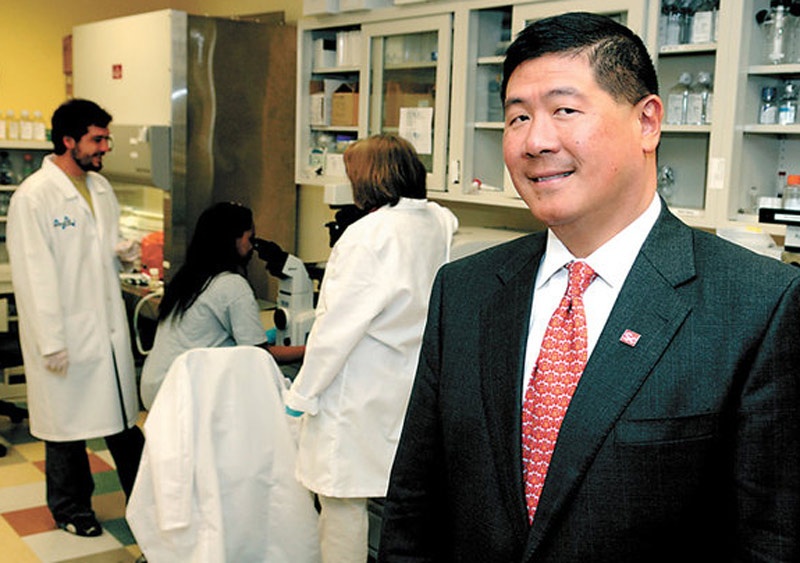 Q: You’ve called OraSure one of the great success stories of a start-up company spinning out of a university. What key elements contributed to that success?
Q: You’ve called OraSure one of the great success stories of a start-up company spinning out of a university. What key elements contributed to that success?
OraSure Technologies’ success as a university spin-off can be attributed to key elements, including a strong intellectual property portfolio, strategic partnerships, and a relentless focus on delivering innovative diagnostic solutions. By translating cutting-edge research into impactful products, OraSure exemplifies the potential of academia-industry collaboration.
Universities like Lehigh can foster similar success stories in a number of ways. Enhancing technology transfer infrastructure streamlines the process of commercializing research.
Promoting interdisciplinary collaboration encourages researchers to address real-world challenges together. Fostering industry partnerships leverages external expertise and resources to accelerate innovation. And supporting entrepreneurship education equips students with the skills to transform ideas into viable businesses.
By prioritizing these elements, universities can create ecosystems where research thrives and transformational ideas become life-changing solutions that benefit society.
Q: How would you describe the impact of advancements in point-of-care and over-the-counter diagnostics and sample collection technologies over your career? What do you see as the next frontier?
Over my career, point-of-care and OTC diagnostics advancements have revolutionized healthcare, enabling rapid, accessible, and accurate testing outside traditional settings. These innovations have empowered individuals, improved patient outcomes, and reduced healthcare burdens. I’m fortunate to have participated in the launch of at-home tests for HIV, COVID-19, and syphilis. To date, those are the only FDA-cleared at-home tests for infectious diseases.
The next frontier lies in integrating diagnostics with digital health, artificial intelligence, and telemedicine. This convergence will enable real-time monitoring, personalized care, and predictive analytics. The key trends I see include wearable devices for continuous monitoring and early disease detection; digital biomarkers from body secretions and excretions that leverage AI to analyze data and identify health patterns; and at-home diagnostics seamlessly integrated with virtual care platforms.
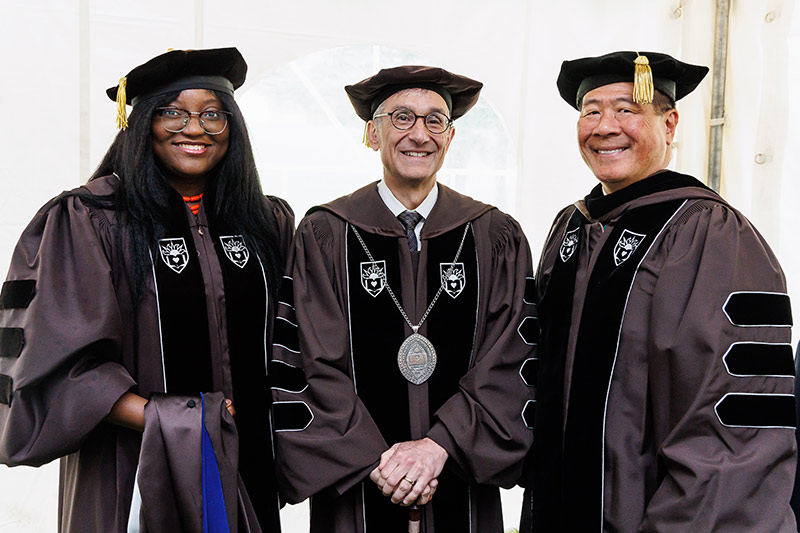 I'm particularly excited about the potential of AI-powered diagnostics to unlock new levels of accuracy and precision. By combining these advancements, we can create a future where healthcare is truly personalized, proactive, and accessible to all.
I'm particularly excited about the potential of AI-powered diagnostics to unlock new levels of accuracy and precision. By combining these advancements, we can create a future where healthcare is truly personalized, proactive, and accessible to all.
Q: In your book, you discuss steering OraSure through the pandemic. What is one lesson from this period that is particularly relevant for engineers?
In navigating OraSure through the pandemic, I learned the importance of adaptability and embracing uncertainty. Engineers often seek clear-cut solutions and rely on past experiences to guide their decisions. However, during unprecedented times, we must be willing to challenge assumptions, pivot strategies, and take calculated risks.
One particularly relevant lesson for engineers at any career stage is the value of fostering a culture of resilience and innovation. By encouraging diverse perspectives, open communication, and a growth mindset, we can build teams that thrive amidst chaos and transform challenges into opportunities.
As we forge ahead in an ever-evolving landscape, engineers' ability to embrace change and adapt will be critical for driving breakthrough solutions, navigating unexpected obstacles, and creating lasting impacts in our organizations and the world at large.

